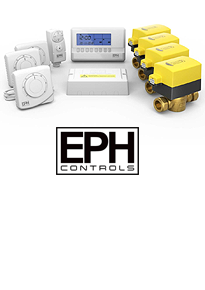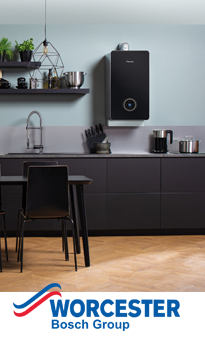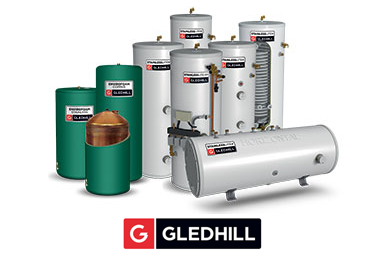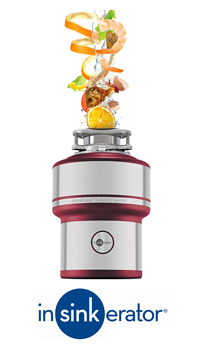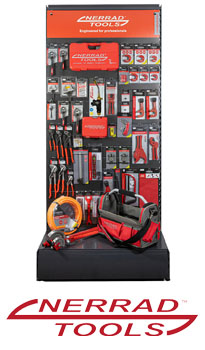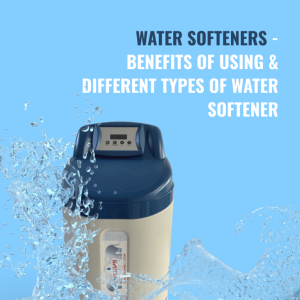 We all take water for granted and in the UK, we are privileged to have easy access to water. Whether it’s drinking, washing or cleaning, water plays a significant role in our lives but you might have also heard about hard water but might not be sure what it means or why you need a water softener. So, in this article, we are going to look at water softeners and help you to understand more about what they are and what they do. What is a Water Softener?
Water softeners are either a filter or an appliance that is used to remove elements within the water to make it softer. These elements are magnesium and calcium, both of which can cause water to be known as hard water. Many people might not realise that water is not simply water as it can differ depending on the location.
Therefore, you could access water in two different locations and they might taste or feel different or they might have a different effect on your skin. Essentially, water is made up of chemicals and the composition of chemicals can differ. Some water will contain higher levels of magnesium and calcium that come from the earth and this makes it hard. Where water contains lower quantities of these chemicals, then it is known to be soft. Commonly, water that comes from lakes and streams is known to be soft. However, water that is found underground and in regions where limestone, gypsum and chalk are present, can be hard. So, when we do come across hard water, we can make it softer by using a water softener. This will remove the excess or high levels of minerals that make it hard and so, the process involves the removal of both magnesium and calcium as well as other metal cations that are found in the water.So, water is more complex than many might realise but a water softener can make a significant difference in the quality of the water.
There are several systems available to help soften water but they work in a similar way because they work using a process that is known as ion exchange. This is the process whereby calcium and magnesium are removed from the water. What this means is that the water will enter a mineral tank and will therefore pass through a bed of resin beads. The beads are made using polystyrene and are charged with sodium ions. The beads hold a negative charge and are known as anions and as the calcium and magnesium minerals both have a positive charge, then it means that the beads and the minerals are attracted to each other. As the hard water passes through, the beads then grab the mineral ions which means that they are removed from the water and the sodium ion is then released.
Water Softeners - Why Should You Use Them?
- They Soften The Water - Essentially, they help to make water softer which means that it has a different chemical composition to hard water. This is because they remove both the calcium and magnesium ions.
- Mineral Content Balance is Improved - As we have mentioned, hard water contains higher levels of both calcium and magnesium ions and so, this is where water softeners can really make a difference. As water softeners will remove calcium and magnesium ions, it means that the levels of concentration within the water are correct and this means that the water can be improved based on the preferences of the user.
Furthermore, as sodium is also used in water softeners, it means that other minerals in the water are balanced out and the amount of sodium used is at the correct level which means that it also meets the recommended daily intake, otherwise you could find that you consume too much sodium.
- Toxins Are Removed - We all know that water is good for us but some of the other chemicals or elements contained within it can prove to be more harmful. One toxin that is found in water is ferrous iron which is a form of dissolved iron. This is responsible for causing water to look darker and it is also what causes stains in toilets and sinks.
- Reduces the Need for Appliance Repairs and Replacements - Not only does hard water taste different but it can also cause a lot of problems with appliances. This is because the chemicals within the water can cause problems with pipework and parts and this can lead to more repairs and even replacements. Therefore, when you choose to use water softeners, you will be able to reduce the need for repairs and ensure that your appliances last for as long as possible.
- Cleaning and Laundry are Made Easier - You might not think it but hard water also has an impact on cleaning. If you suffer from hard water you will find that your clothes will come out of the washing machine feeling stiff and hard while you will also find that your hair might become dry and brittle. This is because hard water does not react with soap in the same way as soft water and this is why it can be difficult to get your laundry feeling right and your hair feeling moisturised. With a water softener, you will be able to eliminate these problems.
- Water Can Taste Better - Some people find the taste of hard water too harsh and so, a water softener can help to reduce the taste. Soft water is not harmful although some people can find it too salty after it has been through the water softening process. Furthermore, you might also use water when making tea and coffee or when cooking, all of which can be impacted if you choose not to use a water softener.
- Reduces Build-Up - Over time, your pipework within the home or even in your heating system can be impacted by the chemicals within hard water. This build up can corrode pipework, cause blockages and give you real problems when it comes to identifying problems. The last thing you need is a plumbing system that has problems and is going to cost you money or even lead to a leak.
- Water is Easier to Use - You might not instantly think of this but soft water is easier to use than hard water. As we have touched on, it makes it easier to wash clothes and your hair but the same can be said for skin and hands. Soap and cleaning products are designed to be used with soft water which means that imbalance in chemicals within hard water will cause a problem with the products you are using and that causes them to work not as well as you would expect.
-
Reduction in Skin Problems - Hard water can be the cause of certain skin problems or it can exacerbate problems and this can prove extremely frustrating for those who suffer. So, by opting to use a water softener, it could be possible to reduce the symptoms or even slow the development of skin conditions such as eczema.
So, now that we have considered the benefits of water softeners, we are going to look at the different types that are available.
Some homes in the UK will suffer from hard water but the good news is that it is possible to solve this problem by installing the correct solution based on your needs. Essentially, water softener systems are used to soften hard water and this will involve removing unwanted minerals such as calcium and magnesium and this process is known as ion exchange.
We have covered the many benefits that come with softening water but you can see that it is definitely a worthwhile consideration because of the way in which it can help to prolong appliances and plumbing systems but also take care of our health due to the removal of high levels of minerals.
Once you have come to the conclusion that you need to install a water softener in your home then you will need to decide which system is right for you. Of course, you will need to consider your home, your needs and what system works for your home. So, with this in mind, you will need to know which is right for you and your water. The options that you have are either electric or non-electric and so, we are going to take you through the two to ensure that they are clear about what they offer, what they are and how they work. This will enable you to make an informed decision based on what you need.
This is considered to be the original form of water softener and so, it uses an electric timer to alert you as to when the resin bed within the tank needs to be regenerated. What this means is that during a specific time each day, the timer kicks in and activates the process of softening the water by using water and salt to flush the resin bed which begins the process of water softening.
As the process is controlled electronically for the cleansing of the resin bed, it means that the resin bed might be cleansed when there is no requirement for it to be cleansed. Furthermore, older systems once used to suffer from unexpected changes which might include the use of too much water or even power cuts could cause a lapse of conditioned water. However, the latest electrical water softener from Plumb2u has overcome these issues and so, the water softening process takes place more frequently and that means that users can access softer water of excellent quality.
There are many people across the UK who live in hard water areas and many of these live in flats and apartments or homes with a lack of space. Fortunately, the water softener from Plumb2U is compact and is designed for use in small spaces, making it the ideal solution for those seeking softer water.
Non-electric water softeners were developed before the electric version and the systems are generally larger than the electric system. This is down to the fact that they are made up of several tanks that are connected using a module and this regulates the brining, backwashing, rinsing and shifting of water automatically from one tank to another when water is required. A meter is used to monitor and measure the amount of water that is used and this operates as water passes through it. They have capability of producing cleaner, softer water in a more efficient way as well as renewing the resin bed and reducing the amount of salt used, all of which produces high quality water. However, it is worth considering that these systems are suitable for homes with more people, as many as 15 and the space to fit the necessary tanks. Electric Water Softeners and Non-Electric Water Softeners - The DifferenceThere is no denying that both electric and non-electric systems are designed to deliver the same results, which is soft water that can help to make water safer and pleasant to drink. While they will also work to prevent the build up of minerals within appliances and ensure that water is easier on the skin.
Despite this, there are certain differences between the two systems with the biggest being that the electric water softener works using an electric timer and the non-electric uses a meter that monitors the flow of water that passes through it.
The non-electric system will automatically take care of regulating the brining, backwashing, rinsing and shifting of water from one tank to another. Once the right volume of water has passed through, the efficient cleaning process will take place and this is where the non-electric system reduces the volume of water that is wasted, salt as well as electricity which is ideal for those looking to save money.
While electric systems are made to meet all regulations, there is always the risk of an electric shock but this is low. Furthermore, there are more elements and parts to fail as they are often exposed to environments that are damp and salty. For those who are looking for a simpler system and if they have more space available, then a non-electric water softener might be the right choice. Despite this, electric water softeners have developed considerably in recent years which makes them ideal for those who want a single unit that can fit neatly into compact spaces. The Different Types of Salts There are a number of different salts that can be used with water softeners.
- Block Salt - These blocks of salt can be added to most of the water softeners in the market and have a 99.9% purity level and dissolves to ensure that it creates a high-quality brine.
- Tablet Salt - This is available in tablets that can be added directly to water softeners. It dissolves easily and also creates a high-quality Brine.
Water Softeners FAQsWhat is a Water Softener? This is a device that is used to soften water through a filtration process. This means that certain minerals are removed that cause hard water as the ions are removed which include calcium and magnesium ions.
A water softener will help your laundry to feel better, it means water is softer on the skin and will help to prolong the life of appliances while it will mean that water tastes differently. Do you supply the installation kits? A standard installation kit is provided with most water softeners. Each model has a different installation kit included. Please check the product description to find out which installation kit size is coming with it. This comes in a range of sizes including 15, 22 and 28mm.
If you need a different installation kit size, you can also buy the installation kits separately. What types of salt are available? Water softeners will use either tablet salt or block salt and they can be used in most water softeners. You should regularly check the salt level as this will allow you to top it up.
Why do you need a water softener and what are the benefits?You will be able to save money on repairs and the replacement of appliances as they can prevent the build up of minerals in the pipework. When this occurs, appliances have to work harder to pump water through narrow areas.
Your hair and skin will benefit from soft water that works better with soaps and other products which means that you will feel and look cleaner.
Soft water will also give you softer clothes as the minerals can cause your clothes to feel hard. Furthermore, you will also need less cleaning as soft water delivers better cleaning results which means that you will save time. What is the right water softener for me?The size of your home and the number of people living in will determine which water softener is right for you. The number of rooms and the size will influence your decision therefore, the more bathrooms you have and the more water you require, the larger the water softener. How much salt is required?Salt has to be added to the reservoir and the amount required will be determined by how much your unit has been used. However, you should ensure that you check them once a month but the salt level should remain at half full at all times. Where should I install a water softener?The process of installing a water softener is quick and easy but it is usually installed at the mains water supply which is often found under the kitchen sink. Are water softener system expensive?The water softener cost may vary depending on the brand and size. You can find many different options and prices and it can be a good investment as it can pay itself in the long term as you won't need to replace your heating system or taps as frequent and you will save some money. Are there any alternatives to water softeners?Depending on what are your needs, there is a wide range of products designed to improve the quality of water and prevent your water system and your heating system to deteriorate. As an alternative to water softener, you can consider using a water conditioner. |
